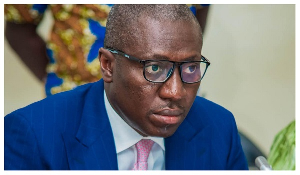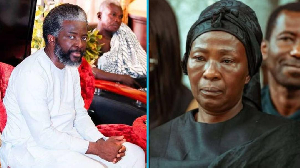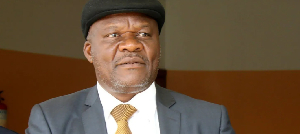The Journalists for Human Rights (JHR) workshop in Kumasi on developing the capacity of human rights reporting of Ashanti Region based journalists was a build-up of the momentum built and the lessons learned from the first two workshops held in Accra and Ho and the Ghana Institute of Journalism. This made the Kumasi seminar, the most successful to date, herald the shape of things to come in not only deepening the skills of Ghanaian journalists in human rights reporting but to focus the journalists light for two days on human rights and journalism, and thus force the darkness covering Ghana?s progress as result of certain aspects of the Ghanaian culture to recede a little.
Breaking from the resource starved Ghanaian journalism culture where journalists attending conferences are given remuneration, it was the moral authority of Journalists for Human Rights that brought journalists from diverse parts of Ashanti Region to the Sir Max Hotel at Ahodwo, a suburb of Kumasi, to focus on how they can use their journalistic tools to drive human rights in Ghana?s progress. A visitor could not pass through the conference hall at Sir Max Hotel without ricocheting off one paragon or another. Such saturation of journalists from diverse media houses and officials from Commission of Human Rights and Administrative Justice (CHRAJ) gave me hope that human rights as a component of Ghana?s progress was on the rise despite the immense inhibitions within certain aspects of the Ghanaian culture that entangles progress.
As some philosophers say, human rights is difficult to discuss especially in the African environment, more especially, human rights and journalism. Despite the two being inseparable and having a natural link, the mind resists them. The subject is amorphous and could be disorderly but Journalists for Human Rights trainers skillfully tied them together and rolled off the natural link between journalism and human rights, and linked this to Ghana?s development process. Richard Quayson, the Ashanti Regional Deputy Commission of CHRAJ opened the floodgate between the media and human rights by indicating that the forum should ?forge lasting partnership amongst ourselves to promote human rights and public morality within our society.? Not only is the media endowed with the ethical values, as part of its public good services, in shaping public morality but Quayson hinted that the media has the constitutional mandate to do, citing the Articles 162 (5), 41 and 167 (b) of the 1992 Constitution.
Despite Ghanaian journalists and civil society increasingly appropriating human rights and democratic characteristics in the country?s progress, human rights and journalism appear intellectually and morally such as a fearful thing, that Quayson, a nice man whose CHRAJ hears and sees almost all the human rights and journalism troubles Ghana-wide, said ?major human rights issues are not brought to the attention of the general populace.? This means Ghanaian journalism, drawing from Ghanaian cosmology, has heavy burden in not only bringing human rights issues to the attention of the public but has to help open the indigenous human rights values embedded in the cultural values of the 56 ethnic groups that make up Ghana and which had been suppressed by colonialism and the long-running one party autocratic regimes and military juntas Ghana has experienced. ?As social workers that deal continually with issues affecting human beings and their rights, you have the duty to help shape people?s understanding and commitment to the respect for human rights in the society and in all professions,? Quayson charged the increasingly enthusiastic journalists.
This requires Ghanaian journalists deepening their knowledge of Ghanaian culture, understanding of human rights values and sharpening of their professional skills. Added to this, Quayson philosophized, is Ghanaians should be ?concerned when the media is accused of reporting very little on human rights issues, because at the end of the day it is these fundamental rights and freedoms that guarantee media freedoms.? In a country which creation saw some 56 ethnic groups brought together against their will and which has created challenging human rights problems, Quayson said Ghanaian journalists are not only to uphold human rights values but must demonstrate the ?promotion and protection of human rights? in ?the welfare and survival? of Ghanaians as a matter of the ?greatest priority? of all the Ghanaian ethnic groups.
What is the way forward for Ghanaian journalism and human rights? Influence. Enlightenment. Empowerment. Integrity. Compassion. Ghanaian values. Quayson thinks Ghanaian journalists wield enormous influence and Ghanaians expect so much from them. ?The society expects you to be a voice of integrity that produces both attitudinal and legal-structural changes within the profession and the society.?















